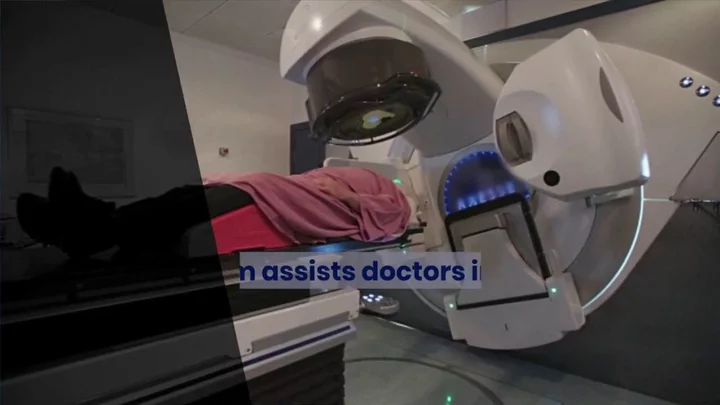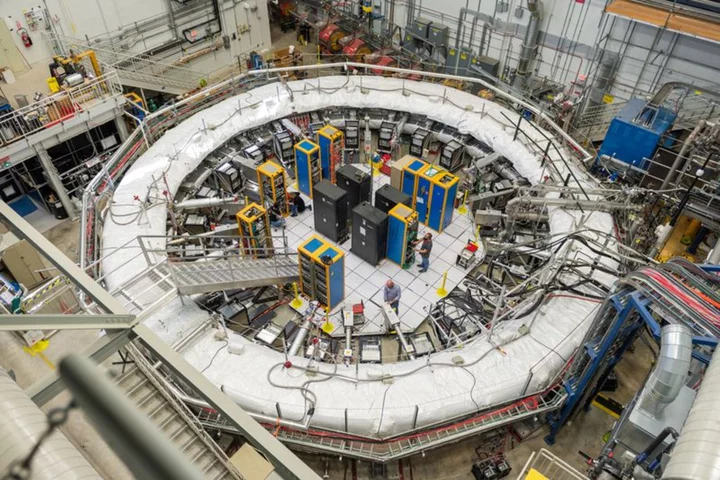
Instagram users are not happy with new likes feature
From Twitter being rebranded as X, to Meta who have rivalled this with their new Threads platform, there's been quite a few changes to social media this year. One of those recent changes also includes Instagram’s new-like animation which applies to those who updated the app. It means that when you like something on Instagram, the large heart will then appear in the area where you double-tapped on the photo and then the heart flies upwards off the screen. Of course, when it comes to social media updates, no one is a fan of change and Instagram users made this clear on X, formerly known as Twitter. Here is a compilation of reactions who all shared they weren't happy with the new like update, as one declared the feature "sucks," though this update did result in some amusing memes too: Unfortunately for those who updated the app, there is no way to change the like option back to the original but those who haven't updated Instagram can avoid the new feature if they opt out of auto-updates on Instagram. Sign up to our free Indy100 weekly newsletter Have your say in our news democracy. Click the upvote icon at the top of the page to help raise this article through the indy100 rankings.
2023-08-16 20:29

Can You Actually Suck the Poison Out of a Snakebite?
You may have been taught the old cowboy trick of applying a tourniquet and using a blade to cut the bite wound to suck out the poison. It looks dramatic, but does it really work?
2023-08-16 03:52

Alberta Will Never Comply with Federal Clean Power Grid Plan, Premier Vows
Alberta will never comply with a Canadian government plan to phase out carbon emissions from power generation by
2023-08-15 09:52

Scientists discover continent that had been missing for 375 years
Geoscientists discovered a continent that had been hiding in plain sight for almost 375 years. Historically, there's been speculation about whether a continent known as Zealandia or Te Riu-a-Māui in the Māori language exists. According to TN News, Zealandia is 1.89 million square miles in size. It was part of a supercontinent called Gondwana, which included most of Western Antarctica and Eastern Australia, over 500 million years ago. It was first said to be first discovered in 1642 by Dutch businessman and sailor Abel Tasman, who was desperate to uncover the "Great Southern Continent". Despite failing to find the new land, he met the local Māori, who were initially displeased by his arrival. However, they went on to provide valuable information about the surrounding land, including the existence of a large landmass to the east. Sign up for our free Indy100 weekly newsletter It wasn't until 2017 that geologists discovered the continent had been hiding in plain sight all along. Scientists agreed on the existence of Zealandia, which started to "pull away" from Gondwana for reasons scientists are still trying to understand. Most of the newfound continent is underwater and has been used as an example by geologists at the Zealand Crown Research Institute GNS Science on how something "very obvious" can take a while to uncover. "[It's] a process which we don't completely understand yet, Zealandia started to be pulled away," Tulloch explained. His colleague Nick Mortimer, who led the study, joked that it was "kind of cool" before explaining: "If you think about it, every continent on the planet has different countries on it, [but] there are only three territories on Zealandia." Have your say in our news democracy. Click the upvote icon at the top of the page to help raise this article through the indy100 rankings.
2023-08-14 22:21

Experts have pinpointed exactly when society will collapse
A prediction about when society is most likely to collapse, made by scientists in the 1970s, has resurfaced – and it looks pretty bleak. Scientists at the Massachusetts Institute of Technology (MIT) used a computer to model patterns like population, natural resources and energy usage. The study, published by Club of Rome, picked out when these factors could hit “limits to growth”, which they said could lead to the downfall of modern life as we know it. They think we’ve got fewer than two decades left, with collapse due in 2040. Gulp. Sign up to our free Indy100 weekly newsletter At the time, the report wasn’t given much credence. But a similar study was carried out in 2009, and came up with similar results. Published by American Scientist, the more recent study found that the model’s results were “almost exactly on course”. "It is important to recognise that its predictions have not been invalidated and in fact seem quite on target. We are not aware of any model made by economists that is as accurate over such a long time span," the study said. And to make matters worse, Dutch sustainability researcher Gaya Herrington concurred with the prediction in 2021. Speaking to The Guardian, Herrington said: “From a research perspective, I felt a data check of a decades-old model against empirical observations would be an interesting exercise.” Herrington found that data aligned with the predictions made back in 1972, which had a worse case scenario of economic growth coming to halt at the end of this decade, and collapse around 10 years later. Thankfully, there was a reason to be cheerful too. She added: “The key finding of my study is that we still have a choice to align with a scenario that does not end in collapse. "With innovation in business, along with new developments by governments and civil society, continuing to update the model provides another perspective on the challenges and opportunities we have to create a more sustainable world.” Have your say in our news democracy. Click the upvote icon at the top of the page to help raise this article through the indy100 rankings.
2023-08-14 19:27

AI could soon be used to treat cancer in the NHS
Artificial intelligence could soon be used to perform radiotherapy to treat certain cancers for the first time. Draft guidance from the National Institute for Health and Care Excellence (Nice) has given approval to nine AI technologies for performing external beam radiotherapy in lung, prostate and colorectal cancers, which could save radiographers hundreds of thousands of hours and help relieve pressure on radiotherapy departments. Currently therapeutic radiographers outline healthy organs on digital images of a CT or MRI scan by hand so that the radiotherapy does not damage healthy cells by minimising the dose to normal tissue. Nice found that using AI to create the contours could free up between three and 80 minutes of radiographers’ time for each treatment plan, and that AI-generated contours were of a similar quality to manually drawn ones. Nice said that the contours would still be reviewed by a trained healthcare professional. It comes after a study found AI was safe to use in breast cancer screenings with evidence growing that it can be more effective in detecting cancers. Sign up to our free Indy100 weekly newsletter Meanwhile, Nice said it was also examining the evidence for using AI in stroke and chest scans. Dr Sarah Byron, the programme director for health technologies at Nice, said using AI could help reduce waiting lists. She added: “NHS colleagues working on the frontline in radiotherapy departments are under severe pressure with thousands of people waiting for scans. “The role imaging plays in radiotherapy treatment planning is quite pivotal, so recommending the use of AI technologies to help support treatment planning alongside clinical oversight by a trained healthcare professional could save both time and money. “We will continue to focus on what matters most and the recommendations made by our independent committee can help to bring waiting lists down for those needing radiotherapy treatment.” The health secretary, Steve Barclay, welcomed the announcement. He said: “It’s hugely encouraging to see the first positive recommendation for AI technologies from a Nice committee, as I’ve been clear the NHS must embrace innovation to keep fit for the future. “These tools have the potential to improve efficiency and save clinicians thousands of hours of time that can be spent on patient care. Smart use of tech is a key part of our NHS long-term workforce plan, and we’re establishing an expert group to work through what skills and training NHS staff may need to make best use of AI.” Charlotte Beardmore, the executive director of professional policy at the Society of Radiographers, welcomed the draft guidance but said it was not a replacement for staff and caution was needed. “It is critical there is evidence to underpin the safe application of AI in this clinical setting,” she said. Using AI would still require input by a therapeutic radiographer or another member of the oncology multi-professional team, she added. “Investment in the growth of the radiography workforce remains critical.” Science is pretty amazing. Have your say in our news democracy. Click the upvote icon at the top of the page to help raise this article through the indy100 rankings.
2023-08-11 18:28

Biden Bets Billions on Tech That Sucks Carbon Out of the Air
The Biden administration is throwing its weight behind technology that sucks planet-warming carbon dioxide out of the air,
2023-08-11 17:22

The odd behavior of a subatomic particle may shake up physics
By Will Dunham WASHINGTON The peculiar wobble of a subatomic particle called a muon in a U.S. laboratory
2023-08-10 23:48

Man 'projected to live to 200' has to use machine to generate tears
The man who is 'ageing backwards' Bryan Johnson has revealed he now uses a machine to generate tears after his body stopped producing them. Johnson, who has the 'biological age of an 18-year-old' has gone viral for going to extremes to achieve peak health, however, it would seem everything isn't going so smoothly with his eyesight. "I have a dry eye condition which we found in our routine [doctor] visit", he tells the camera. He then films himself using the FDA-approved iTear100, which massages the side of his nose to stimulate tear ducts. Sign up to our new free Indy100 weekly newsletter
2023-08-10 22:49

Singapore Exchange revises IPO rules for life science firms
SINGAPORE Singapore Exchange Ltd (SGX) is amending its initial public offering (IPO) rules to clarify that life science
2023-08-10 18:50

13 Cool Facts About Ötzi the Iceman
Nicknamed Ötzi the Iceman, the mummified man was around 40–50 years old when he died in the Copper Age. Here are 13 surprising facts about him.
2023-08-09 23:59

Amazon Swaps Rockets for First Kuiper Satellite Launch
Amazon.com Inc. said it plans to launch the first two test satellites for its Project Kuiper constellation this
2023-08-08 02:51
